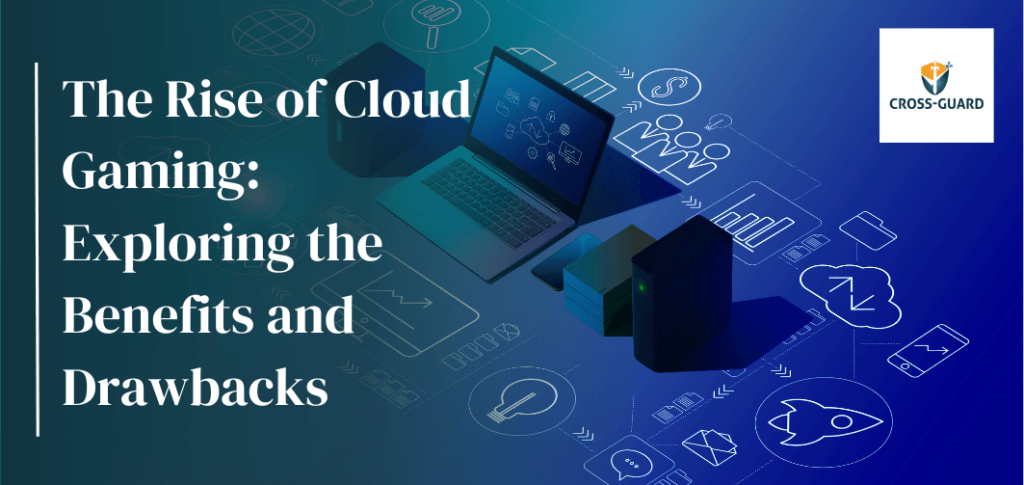The Rise of Cloud Gaming: Exploring the Benefits and Drawbacks

There’s no hiding the fact that cloud computing has revolutionised the gaming industry. We’re currently standing at the edge of a new gaming revolution, a time when instead of purchasing costly gaming equipment and consoles, players can enjoy games on any device connected to the internet, thanks to cloud technology.
What is Cloud Gaming?
Cloud gaming involves playing video games through remote servers in data centres. You don’t have to download games to your computer or console. Instead, you need a stable internet connection to receive game data from a streaming service to an app or browser on your device. The game is then displayed and played on the remote server, but everything you see and do appears as if it’s happening on your device.
It works just like Netflix or any other video streaming service. The main distinction is that the server hosting the video can also respond to your actions. With cloud gaming, the only requirement is a dependable internet connection.
This new way of playing games comes with many benefits. To start, it’s transforming the world of gaming by providing access that’s never been seen before. It’s a major shift, allowing players to enjoy their favourite games on a wide range of devices, including computers, gaming consoles, mobile phones, and tablets.
Also, there is no high or low specification needed when it comes to this level of gaming. The Cloud server enables users to play on any device at any time within the provider’s terms. As long as a steady broadband connection to the server is available, you should be able to connect from anywhere in the world. With this in mind, having to stream from an outsourced server will need even more data compared to the standard system download, so if you don’t have excellent broadband speeds you may struggle with this method.
Despite its forward-thinking design and many advantages, cloud gaming also has some possible disadvantages. The biggest one is needing a fast internet connection. Since games are played as they are streamed, any delay, fluctuation, or delay can greatly affect the gaming experience.
The continuous flow of information also increases strain on internet connections, possibly leading to overcrowding and impacting the efficiency of other devices in the home.
The emergence of cloud gaming marks a thrilling transformation in the gaming sector. It offers the potential to enhance accessibility and ease of use, although it also brings its unique set of obstacles. As progress goes on, it will be fascinating to observe how cloud gaming continues to develop and challenge the established conventions of gaming.
SHARE
DOWNLOAD A COPY OF OUR BROCHURE

GET A QUOTE
Get a Quote Form
"*" indicates required fields
